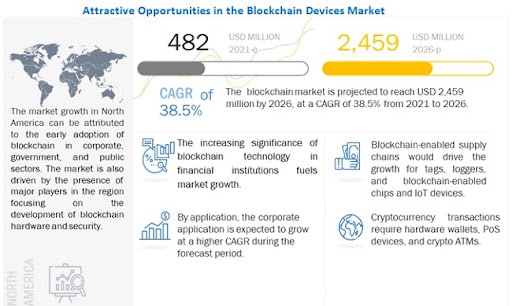The Role of Blockchain in Securing Supply Chains
The Current era is all about advancement and with connected technology solutions many transformations are being introduced within the market. In this category, the process of supply chain holds major criteria in the commercial sector for ensuring the good reaches its destination with accuracy. However traditional supply chain processing only shows connectivity while lacking efficiency and security. For this technical advancement-aided solutions provide the required transparency and reliability for such standard issues or problems.
The transformation of the supply chain industry can be practiced with the integration of Blockchain technology. This term is not just a buzzword but a transformative force that holds the power to make supply chain operations secure and smooth. This is defined as a shared immutable ledger. That provides the process of recording transactions and tracking assets within a business network. In this, the asset can be tangible and intangible depending on the requirement criteria. The emergence of a blockchain-aided solution within the supply chain industry can bring many advantages. As in this virtually anything of value can be tracked and traded in a blockchain network.

In this context, the research data by Markets and Markets presents similar aspects related to the integration of blockchain in the supply chain industry. As mentioned in the above figure, blockchain is the trendiest technology in recent times and has a variety of blockchain application development solutions. This research projects that the blockchain market will reach USD 2,459 million by 2026, starting from a base value of USD 482 million in 2021. This indicates a CAGR rate increase of 38.5% between the time phase of 2021-2026. The future is characterized by progress, and this blog was established to guide you in locating a trustworthy source of information on blockchain technology.
Blog Highlights
This blog explores the key elements of blockchain transformation in the supply chain industry. Focusing on different blockchain functionalities in the supply chain and the potential benefits of integrating blockchain. Whether you’re a business organization or an individual in the supply chain industry seeking comprehensive information about blockchain. This blog serves as a valuable resource to meet your informational needs.
Blockchain-Aided Functionality of Supply Chain
Innovation is the key to the future development of any sector of the economy. The deployment practice of blockchain within the supply chains not only increases the process efficiency but also decreases the investment cost. This integration works on transforming the existing structure of supply chains. This ensures an effective collaboration of other supportive practices that are mandatory for digital transformation. Some of these blockchain-aided supply chain practices are mentioned further.
1. Provenance Increment
Blockchain technology in supply chain plays a pivotal role in tracking the detailed origins of physical goods, especially those manufactured and transported within complex, inter-organizational, or internationally distributed supply chains. This is achieved through the utilization of traceability ontologies and constraints on the Ethereum blockchain. The primary objective is to establish and maintain the provenance of supply chain goods, offering certification, traceability, verification, and traceability of product information, as well as assurance of origin and authenticity across the entire supply chain, even when spanning international borders.
2. Supply Chain Resilience
Blockchain technology plays a pivotal role in enhancing supply chain resilience. It mitigates the adverse effects of disruptions through blockchain mobile app development solutions and proactive risk management strategies, all while delivering multi-layered protection for supply chain networks. The inherent structural design of blockchain enables the comprehensive assessment of risks, encompassing both organizational and network-related vulnerabilities within the supply chain. This resilience-enhancing technology not only safeguards the supply chain but also facilitates its robust adaptation to an ever-changing business landscape. By fostering transparency and traceability, blockchain empowers organizations to better anticipate and navigate challenges, ultimately fortifying their supply chains.
3. Re-engineering of Supply Chain Practices
Blockchains improve the transparency and visibility of supply chains, allowing for process automation, the removal of intermediaries, and real-time tracking through traceability, privacy, and data management methods, all of which form the fundamental principles of supply chain reengineering. A well-reengineered supply chain can achieve harmonized tracking information across all aspects of business operations. Additionally, the adoption of smart contracts can contribute to further reductions in time and cost, providing valuable support for supply chain reengineering.
4. Use of Blockchains in the Safety and Security of Supply Chains
The Blockchain offers capabilities for authentication, confidentiality, privacy, access control, data, and resource provenance, as well as integrity assurance within the services it offers. Additionally, it facilitates the creation of a risk control analytics framework that explores the interplay among business, information, and technology, providing an analytical perspective on the digitalization of supply chains. Even in large-scale production enterprises, blockchain can effectively manage risks, scaling up to meet specific requirements. Its enhanced cybersecurity features and superior performance make it a more secure choice compared to traditional IoT systems and conventional security services.
5. Business Process Management
Blockchain empowers streamlined business process management through smart contracts, consolidating control flows and business logic for inter-organizational processes. The use of blockchain in conjunction with smart contracts for hyperconnected logistics is also feasible. These controls are facilitated by triggers that serve as a crucial link between enterprise applications and the blockchain. A pilot study focused on contract management for a grid operator has underscored the detrimental impact of information gaps among stakeholders, which can lead to suboptimal business performance and erode trust among involved parties. Implementing smart contracts for any modification requests or payments can automatically trigger a workflow based on necessary approvals, thereby achieving increased speed, trust, and enhanced business performance.
6. Product Management
Blockchain integration within supply chains enhances cycle time, productivity, quality, and the potential for new business opportunities and product differentiation. Research in the field has particularly explored efficient product deletion and price tracking. Product deletion, involving recognition, analysis, evaluation, decision-making, and implementation, benefits from blockchain’s real-time tracking, multilayer data management, improved demand forecasting, risk reduction, and automated decision-making.
Additionally, blockchain’s capacity to store data supports the analysis of company policies related to product deletion and the circular economy. Price tracking in product logistic distribution solutions is revolutionized by blockchain, providing consumers with transparent pricing information from raw materials to suppliers, fostering public access to data, and ensuring price transparency. Pilot implementations, such as smart contracts on the Ethereum network, have already demonstrated the advantages of blockchain in achieving price transparency and efficient product management within supply chains.
Read more: Industry Getting Disrupted Due to the Blockchain
Potential Benefits of Blockchain in Supply Chain

In this Industry 4.0 era, technology like blockchain is suggested as a way to organize records in a distributed manner with the help of advanced mechanisms. Blockchain in supply chain management holds great potential and provides different benefits. Which are mentioned further.
Reduced risk
Supply chain risks can be categorized into sourcing, transport, facility, and distribution. Sourcing risks arise from supplier delays, while transport risks affect inbound and outbound logistics. Facility risks stem from disruptions in warehousing and manufacturing, and distribution risks occur due to fluctuating demand. Blockchain is a valuable tool to address these risks with distribution logistics software development, offering access to reliable data, timely issue identification, and alternatives. By eliminating data silos and ensuring data integrity, it fosters trust among all parties in the supply chain, reducing risks effectively.
Enhanced Visibility
Many companies grapple with the challenge of ensuring end-to-end visibility and transparency in their supply chains, especially for large organizations with complex, multi-tiered structures. Anchor companies, possessing market power and high-profile brands, often find it challenging to ensure ethical treatment for small businesses far upstream. Blockchain offers a solution by digitizing physical assets, creating an immutable transaction record across the value stream. Coupled with IoT devices and RFID tags, it allows real-time monitoring of goods, enhancing visibility and facilitating ethical and sustainable practices upstream. Particularly in industries prone to unethical sourcing, such as conflict diamonds.
Read more: How Blockchain Solutions are Revolutionizing Healthcare
Improved Trust
In vast global supply chains involving numerous parties, trust issues often hinder collaboration. Trust tends to diminish even after the second tier of relationships, largely due to concerns over counterfeit goods, mistreatment of workers, and inconsistencies in sustainability practices. Blockchain offers a transformative solution by recording all transactions on a shared, immutable ledger, fostering trust among all participants, regardless of their size. It reduces fraud, minimizes communication errors, enables contract oversight, and saves time on data validation. Additionally, smart contracts play a crucial role in enhancing trust by automating the enforcement of contract terms, reducing the risk of incorrect execution.
Smart Contract Management
You can establish individualized contracts tailored to each function within the blockchain ecosystem. Promoting flexibility and fine-tuned control over diverse business processes. This customization enhances process design for various business operations, allowing organizations to optimize their workflows and adapt swiftly to changing demands. Moreover, blockchain technology significantly amplifies visibility across the supply chain, eliminating the dependence on intermediaries. By providing real-time, transparent access to transaction data and contract terms. It empowers participants to directly engage in transactions, reducing delays and costs associated with intermediaries. This enhanced visibility and reduced reliance on third parties foster greater autonomy and efficiency in supply chain management.
Immutability
At the core of blockchain technology, immutability ensures that once the system records data, it maintains its unaltered and secure state, creating a tamper-proof ledger that fosters trust and transparency. Consensus mechanisms complement this fundamental feature by validating and approving any modifications to the blockchain. These mechanisms ensure that network participants agree to any changes in the ledger, preserving data integrity and enhancing security. Consequently, blockchain offers a highly secure platform for transactions and information management, safeguarding against fraudulent activities and unauthorized alterations. Making it a valuable technology for a wide range of blockchain app development beyond cryptocurrencies.
Intellectual Property Management
Intellectual Property protection and registration. These components are crucial in safeguarding the rights and assets of innovators, creators, and businesses. Intellectual Property protection involves establishing strategies and mechanisms to shield intellectual assets. Such as patents, trademarks, and copyrights, from infringement or unauthorized use. It is essential for preserving the unique innovations and creations that underpin a company’s competitive advantage. Concurrently, Intellectual Property registration is the formal process of legally documenting and securing these rights, reinforcing their validity and enforceability. By managing both protection and registration effectively, individuals and organizations can navigate the complex landscape of intellectual property with confidence, ensuring their innovative work remains legally protected.
Conclusive Outlines
In the realm of transparent tracking with Blockchain for securing and streamlining supply chains, a revolution is underway. Cost-effective solutions tailored to diverse markets are simplifying business interactions and transactions. The demand for these efficient platforms is driving a surge in the number of Blockchain developers and specialized organizations. Numerous startup projects have overcome initial challenges to establish a positive reputation, and they continue to adapt to evolving supply chain needs.
Related Blog: Implementing AI in Logistics and Supply Chain Management
Amplework proudly stands out as a reputable company with over 5+ years of extensive experience in transparent tracking through Blockchain for securing and streamlining supply chains. Our team consistently exceeds client expectations, having completed numerous development projects. We are unwavering committed to reliability and trustworthiness which translated into a remarkable milestone. Our solutions facilitate seamless business interactions and transactions. Explore our website to discover the exceptional Blockchain solutions for supply chain transparency that we provide. Partner with Amplework to harness the potential of advanced Blockchain technology, simplifying your business interactions and transactions for growth and prosperity.



 sales@amplework.com
sales@amplework.com
 (+91) 9636-962-228
(+91) 9636-962-228





